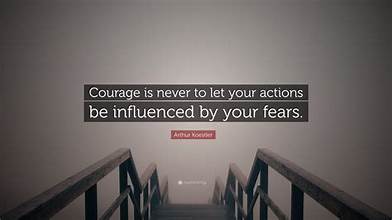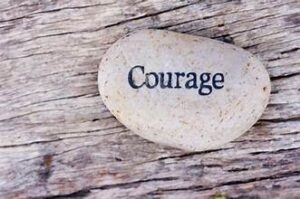“Courage is never to let your actions be influenced by your fears.” –Arthur Koestler
I talk about this a lot—probably more than I should. But when I reflect on my time as a high school and college athlete, I see a glaring truth: I was emotionally immature, and I regret it. As a parent, my mission is to turn those regrets into progress, not just for myself but for others. This week, I’m opening up about my failures as a young athlete, hoping that some of you won’t make the same mistakes I did.
I was coached hard—very hard. My high school and college coaches used tactics that, in today’s world of social media and helicopter parenting, would have likely gotten them fired before the season’s midpoint. But back in the late ‘80s and early ‘90s, the landscape was different.
I wanted to lead. I wanted to be the player my coaches trusted, the extension of them on the floor. I was raised to respect my coaches, but no one ever talked to me about whether they should respect me. Back then, respect was a one-way street—you dealt with it, no questions asked.
More than anything, I craved a relationship with my coaches that transcended wins and losses. I wanted them to recognize my unselfishness, my willingness to sacrifice personal stats for the good of the team. But they didn’t. Instead, I felt unseen, undervalued, and ultimately, unworthy. That lack of acknowledgment didn’t just hurt my game—it shattered my self-worth. I was obsessed with basketball, and for many years, I believed that love had been ripped from me in a way that felt irreparable.
If I could go back in time and talk to my 17-year-old self, I’d tell him one thing: Create your own joy.
Forget about whether you start. Forget about whether your coach gives you validation. Forget about wins and losses. Just love the game. Love the grind. Love playing with your teammates. Don’t let anyone take that away from you.
And I’d give him four pieces of advice that I wish I had followed:
1. “Yes, Coach.”
There will be times when you don’t agree with your coach—times when you are absolutely sure they are wrong. But arguing in the heat of the moment? That won’t get you anywhere. Instead, listen, make eye contact, and say, “Yes, Coach.” If you have concerns, address them later—before or after practice, away from the chaos. Coaches don’t have time to manage every insecurity mid-drill. Be coachable first, then seek understanding.
2. Show Up Early. Stay Late.
I was decent at this—I loved the game so much that I usually had to be forced out of the gym. But I see too many athletes today get frustrated with a coach and respond by doing the bare minimum. They show up two minutes before practice and disappear the second it ends. That’s a self-inflicted wound. Coaches notice who puts in the extra work. If you want respect, earn it when no one is watching.
3. Hear the Words, Not the Tone.
I’ll be honest—I can be an impatient coach. Sometimes, I catch myself using the same harsh delivery my coaches used on me. And while I don’t always like that part of me, I recognize that my toughness today is a direct result of how hard I was coached. Back then, though, I took everything personally. I internalized every critique as an attack on my character when, in reality, my coaches just wanted me to sprint back on defense faster or execute a play better. I wasted so much energy being hurt instead of just fixing the problem. If I could do it over, I’d stop analyzing the how and start focusing on the what.
4. Focus on the Next Play.
My high school coach had a quick trigger—I always felt like I was one mistake away from the bench. That fear made me hesitate. I second-guessed myself, played cautiously, and constantly looked to the sideline for approval. That was my biggest mistake. Basketball is a game of constant second chances. I wish I had told myself after every error, “That play is over. You get another shot in 10 seconds. Move on.”
The truth is, we don’t get do-overs. But we do get to pass on wisdom. If you’re an athlete reading this, learn from my mistakes. If you’re a parent or coach, help your athletes create their own joy. Sports will end one day. But the lessons, the mindset, and the self-worth they build? Those last forever.o be tough when it mattered most. I wish I would have realized that was their gift to me and not a curse.
If you’ve enjoyed this blog and want to dive deeper into understanding motivation and personal growth, check out my book, Significant Recruiting: The Playbook for Prospective College Athletes. It provides valuable insights into the recruiting process and how athletes can take control of their journey.
Families and school administrators can also schedule a strategy session with me. Together, we can uncover what truly motivates you and develop a game plan for long-term success.






